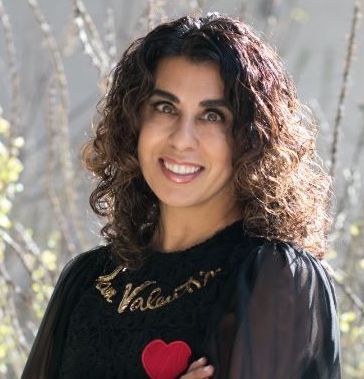- Center on Health Equity & Access
- Clinical
- Health Care Cost
- Health Care Delivery
- Insurance
- Policy
- Technology
- Value-Based Care
In ASPC President’s Address, Dr Martha Gulati Reflects on Progress and Future Goals in Cardiology
Martha Gulati, MD, MS, discusses the accomplishments of the American Society of Preventive Cardiology (ASPC) during her presidency and emphasizes the importance of advancing preventive cardiology.
In her final address as president of the American Society of Preventive Cardiology (ASPC), Martha Gulati, MD, MS, FACC, FAHA, FASPC, FESC, professor of cardiology at Cedars-Sinai Smidt Heart Institute, put a spotlight on the significant strides made in preventive cardiology and the growth of the ASPC community.
Martha Gulati, MD, MS | Image credit: Canadian Women's Heart Health Centre

In this interview with The American Journal of Managed Care® (AJMC®) ahead of the ASPC 2024 Congress on CVD Prevention, Gulati highlighted the increased focus on prevention due to novel drug developments and quality care metrics and shared her vision for further integrating preventive cardiology into standard training and accreditation.
"Beyond just talking about sick care…I think our focus in the future really needs to be in prevention,” Gulati said.
This transcript has been lightly edited for clarity.
AJMC: What will you be covering in your ASPC president’s address, and what do you hope your audience takes away from it?
Gulati: It's the end of my presidential term, so my president's address will cover where we started and where we hope to go in the future. [I will be] hopefully planting seeds for our community of things that we've accomplished, which is a lot, and not just the ASPC. The ASPC has accomplished a lot, which I'm very proud of. But additionally, even the prevention community, we've come a long way in the last few years where I think prevention is beginning to be more at the forefront, partially because of novel drug development but also because hospitals and clinical practices are being held to be more accountable on their care, whether we talk about bundled care or quality metrics that are being increasingly followed in hospitals. I think that has really helped put prevention at least more into the limelight and into the center; I think it's what patients want as well.
Beyond just talking about sick care—which we do really well in America and we do really well in cardiology, taking care of very sick people—I think our focus in the future really needs to be in prevention. I think ASPC is leading in this direction, and it shows in so many ways. Our membership has grown enormously; I'm going to be showing that for sure, showing the growth in our community. Prepandemic, our membership at ASPC was around 400, and now we're at about 1500 members.
You'll even see at our meeting, our meeting this year has over 400 attendees, which for us is a very big meeting, that's a big percent of our community showing up and wanting to learn. And we know that it's in the middle of many people's summer vacation—I feel like if it was at a different time, maybe it would even attract more, but no time is perfect to do any particular meeting. It's also just a time for me to reflect on where I'd love to see us go, and it's sort of food for thought.
Right now, we've made preventive cardiology into a subspecialty, but it's not genuinely a subspecialty. Yet, we know we do advanced training without accreditation just so that we can acquire the expertise. We even know trainees come out of fellowship and they don't feel equipped to do preventive cardiology; there's actually no requirement in our standard COCATS [the American College of Cardiology Core Cardiology Training Symposium], which is the training of a cardiologist related to prevention. So, I think in the future, one thing I want to see happen is to be within COCATS and have a core curriculum that every cardiologist leaves with some amount of preventive cardiology [knowledge] because it really is everybody's job. But the idea of being a specialist, we're working on that—we didn't finish it under my term and it'll be many years down the road—but we would like to see an examination and accreditation for people who want to specialize in preventive cardiology.
We've seen in Europe, the European Society of Cardiology now does actually offer a version if you do their exam. The reason we didn't align with them is because there's a little bit of difference between what they view as preventive cardiology vs what in America we view. We're closely aligned, they are our friends, but we couldn't just simply say, "OK, we're going to use that examination for our preventive community." So, there's a lot of work and a lot of exploration still left to be done, but I think that should be one of our priorities for the future. Also in the future, we'd like to be at least providing training opportunities for fellows in training, until there's more consistency across the board where people are getting trained in prevention, at least some basic prevention.
Telehealth Intervention by Pharmacists Collaboratively Enhances Hypertension Management and Outcomes
January 7th 2026Patient interaction and enhanced support with clinical pharmacists significantly improved pass rates for a measure of controlling blood pressure compared with usual care.
Read More
